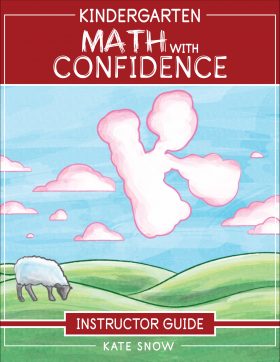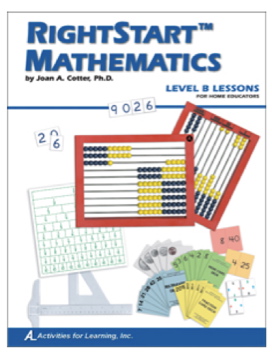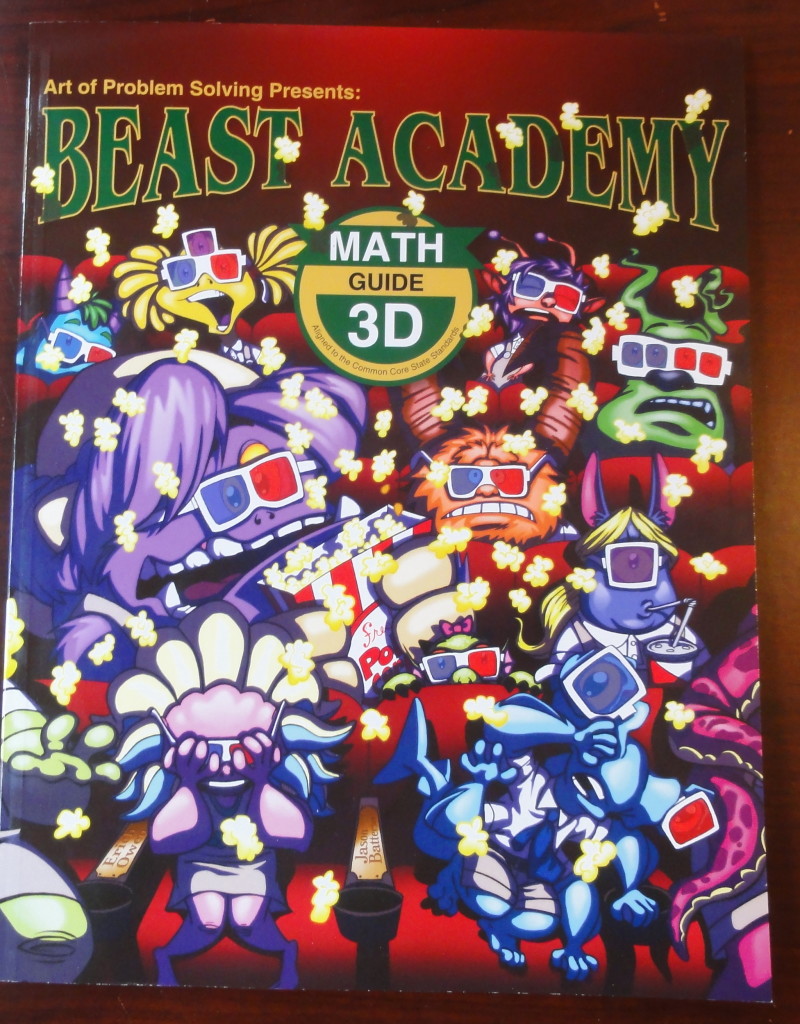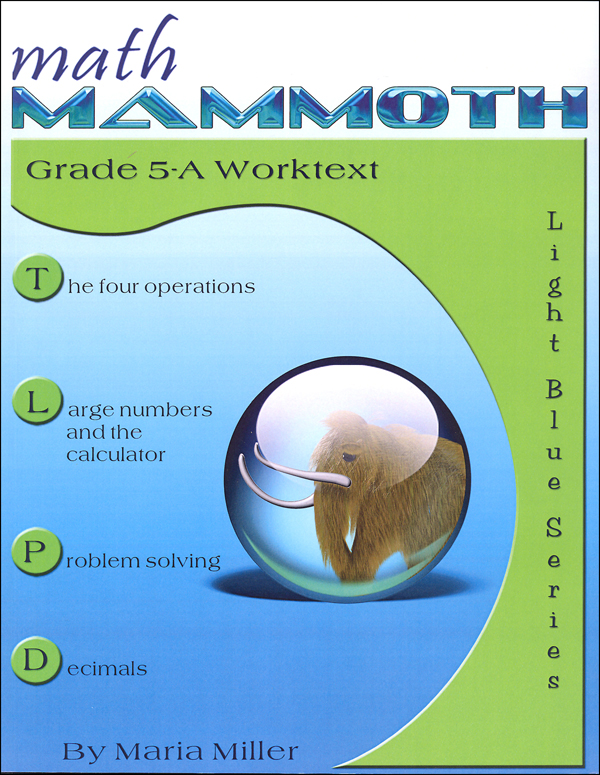There is no one perfect curriculum, but the right curriculum will help you teach well and raise children who are confident and successful at math. These reviews and buying guides will help you find a curriculum that’s a great fit for your family.
How to Choose Homeschool Math Curriculum
An overview of the key ingredients that make for an excellent math curriculum. Includes my top curriculum picks, plus questions to help you identify your personal constraints to choose the best fit for your family.
Why It’s Okay to Switch Math Curriculum
The benefits I’ve gained from changing curriculum, the potential pitfalls, and how to make your curriculum switch a success. If your curriculum just isn’t working for you, it’s worth considering a switch.
Please note that comments are closed on this page. If you have a question, you can contact me here.
A great start for your child’s math education, but also the biggest investment of time and money.
Solid conceptual mastery with plenty of practice and problem-solving, all wrapped up in a familiar textbook/workbook format.
Singapore’s newest program, with more detailed teaching directions, more activity options, and a full-color workbook for all grades.
Unconventional and challenging program for curious kids, with a graphic-novel-style textbook and lots of problem-solving.
Budget-friendly curriculum that develops thorough conceptual understanding and number sense with a minimum of hands-on teaching time.
Straight-forward, incremental, mastery-based program. An excellent choice for children who struggle with math or math anxiety.








Hi Kate,
I’m curious if you’ve ever looked at Shiller Math? It seems similar to right start. If you have looked at it I’d like to hear your thoughts.
Thanks!
Love, love, love your website and books. Can you review Saxon?
Hi Donna,
Thanks for the kind words! I haven’t had time to write a full Saxon review, but I’ll give you my nutshell take on it:
1. “Saxon” can mean two different programs: Saxon K-3, or Saxon for 4th grade and up. It’s important to distinguish between the two when talking about them, because they are radically different from each other. The K-3 isn’t my favorite program, but its conversational and hands-on lessons are great. I have many more qualms about the upper grades program.
2. For both Saxon programs, the incremental review is very helpful. Most kids really need a lot of practice to fully master skills, and the way Saxon breaks it up and spreads it out is very helpful for mastering skills.
3. However, when it comes to understanding concepts, the way that both Saxon programs skip around from topic to topic can make it hard for kids to understand how concepts are related to each other and to make sense of all the procedural skills. Kids who are math-intuitive may figure this out on their own, but many kids will never see those connections with Saxon unless their parents make a strong effort to help them see them.
4. I’ve met a lot of second-generation homeschoolers who absolutely loathe math because of the upper-grade Saxon program. It seems to be partly because they hated reviewing the same things over and over each day, and partly because the jumpy lesson structure kept them from ever making sense of what they were doing or seeing any beauty in math.
5. Both Saxon programs provide zero explanation for parents about how to teach math, how to handle kids’ mistakes, and what to do if your child doesn’t pick up the material the first time. It’s scripted, but it doesn’t provide much guidance for what to do when your child goes “off script”–and kids often do not go by the book!
All that said, many homeschoolers have used Saxon over the year and had a positive experience. In general, I think it works best for kids on either end of the math spectrum: math-intuitive kids who pick up concepts quickly and can make the connections on their own, or kids who really struggle with math and do best with a very procedural program with lots of review.
If Saxon is working well for a particular family, there’s no need to change. But on the other hand, there’s sometimes a sense in homeschooling circles that Saxon is the gold standard (and that if you’re not using Saxon, you’ve somehow failed). This is absolutely not true. There are a lot of good programs out there, and Saxon isn’t necessarily the best fit for every family.
Thanks for a great question! Happy Math!
Kate
Hi Kate, have you reviewed Teaching Textbooks or Math Lessons for a Living Education? If not, any thoughts? We are doing Singapore now, I’m debating on whether I’ll continue with Singapore 6. Part of me feels like we may need a change. My son is in Singapore 5 but he’s in 6 th grade (12 years old). He gets the concepts, it just takes a while. Some of the word problems are challenging! I’m ashamed to say I have struggled with them, which makes me question myself and if Singapore is a good match! I also have a 5 th grader in Singapore 5, and a 3 rd grader in Singapore 2. Thank you for your time and all you do!
Also curious what your thoughts are on Teaching Textbooks. Both my kids use this and both scored very low on state testing (Iowa Basics). Just saying.
Hi Katie,
I’m not a fan of Teaching Textbooks. It works okay for some families, but many find that their children learn to match the instructional patterns without really understanding the math. I wonder if that’s what’s happened with your kids. If you decide to stick with it, definitely keep a close eye on your children’s progress and level of understanding, and make sure they’re doing math on paper and explaining their work to you regularly . You might also take a look at Khan Academy, which offers a deeper level of online instruction (and for free!)
Happy Math!
Kate
Hi Allison!
If the word problems are your only concern about Singapore, don’t sweat it–they’re hard! They’re great for developing algebraic thinking, but they are very different from how most of us were taught.
Regarding the two programs you mention: I put some thoughts about TT above. I’ve only looked at Math for a Living Education somewhat, and it has its pluses and minuses. There’s a nice focus on math in real-life, which is great for kids who thrive with context. But, it’s quite light. Many children need more practice than the program includes (especially with the math facts, but also with other computations), and the scope and sequence is a little behind many other homeschool math programs. If you use it, you’ll definitely want to look for ways to provide enough practice for mastery.
Happy Math!
Kate
Hi Kate!
Can you speak at all to Masterbooks Math for the K/1st grade levels? I’m drawn to how it uses story throughout to teach concepts; my almost 5 year old has a very vivid imagination and loves to read so I imagine this would add to the enjoyment for her. Are there any other similar formats you might recommend? Thank you!
Hi Stephanie,
I’ve only looked at Math for a Living Education somewhat, and it has its pluses and minuses. There’s a nice focus on math in real-life, which is great for kids who thrive with context and stories like your daughter. But, it’s also quite light. Many children need more practice than the program includes (especially with the math facts, but also with other computations), and the scope and sequence is a little behind many other homeschool math programs. If you use it, you’ll definitely want to look for ways to provide enough practice for mastery.
Two other story-oriented programs are Life of Fred and Beast Academy. LoF is a program that also requires some supplementation. Beast Academy begins in second grade, and it’s geared towards kids who thrive on a challenge in math. The Good and the Beautiful isn’t as strongly story-oriented, but it does include a lot of extensions and some literature connections.
Another great way to add some story to any math time is to incorporate math picture books. My new kindergarten program, which is coming out this spring, has weekly picture book suggestions so that families have a go-to list to make it easier.
Happy Math!
Kate
What are your thoughts on Good and Beautiful math program ?
Hi Debbie,
I haven’t had a chance to do an in-depth review yet for The Good and the Beautiful. I’m hoping to write on this spring, though, so stay tuned! 🙂
Happy Math!
Kate
Hi Kate!
My children are good at Math. I am not. 🙂 I am planning on taking the plunge into homeschooling next year.
I have been following your resources and reviews and have also begun using some of your math books with my children in the last week. We plan to fill in the math facts this summer before beginning next year, working through your Facts that Stick books. Even my 3rd grader needs to revisit these.
Where do you suggest we go from here? I am open to any program, but my oldest will be in 6th grade and really likes math. What program do you suggest keeps the children moving ahead while giving me the resources to teach with confidence? (either by being scripted or with videos?)
Originally, I had planned on Rod & Staff (because it comes from Memoria Press in which I figured I could get support to teach?) and also with Beast Academy for ‘fun.’ But I see that you said Rod & Staff is your least favorite program to teach. Can you say why you dislike teaching Rod and Staff?
I liked the idea of Singapore as well. But I wasn’t sure I could teach it confidently? Is there enough teacher support? I was told Saxon was good for those who need scripted.
Thank you!
Hi Sabrina,
Rod and Staff is a solid program, but I don’t have a lot of fun teaching it because it’s so dry and straight-forward: you teach a skill, your child practices the skill and does some review, end of story. But that may be exactly what you’re looking for, so don’t let my meh-feeling toward it sway you too much! Beast Academy would be a great complement to Rod and Staff, since it adds fun, problem-solving, and conceptual understanding.
For your sixth grader, the Memoria Press pre-algebra/algebra/geometry sequence is very solid. If you’re going with MP overall, I think your oldest will be in good shape going along with those selections.
Happy Math!
Kate
Hi Kate,
What are your thoughts on CTC Math? I’ve been using it for my Kindergartner. He loves Math, but hates worksheets. He really enjoys it, but I do supplement your Math/ Subtraction Facts that Stick and some Horizon worksheets, etc for more practice. However, CTC is the curriculum we follow. He is only in Kinder, is my oldest and this is our our first year homeschooling. I just really want to give him a solid Math foundation. Thanks so much for your input!
Hi Courtney,
Sorry, I’m not familiar enough with CTC to be able to comment on it.
Happy Math!
Kate
Hello Kate,
This is our first venture in to homeschooling and started The Good and the Beautiful math K and Level 1 for my 4 and 6 year old. My older children are doing BA 2 and BA4 and they absolutely love it. Have you had a chance to look into TGATB yet? I’m really hoping it’s going to give them a solid base so that they can excel when they reach BA2. Thank you for these very insightful posts!
-The Wolfe Family
Hi Megan,
TGATB will definitely give your kids the base they need to tackle Beast Academy. I just recently updated my How to Choose Curriculum article, and I have a few more thoughts on TGATB there.
Happy Math!
Kate